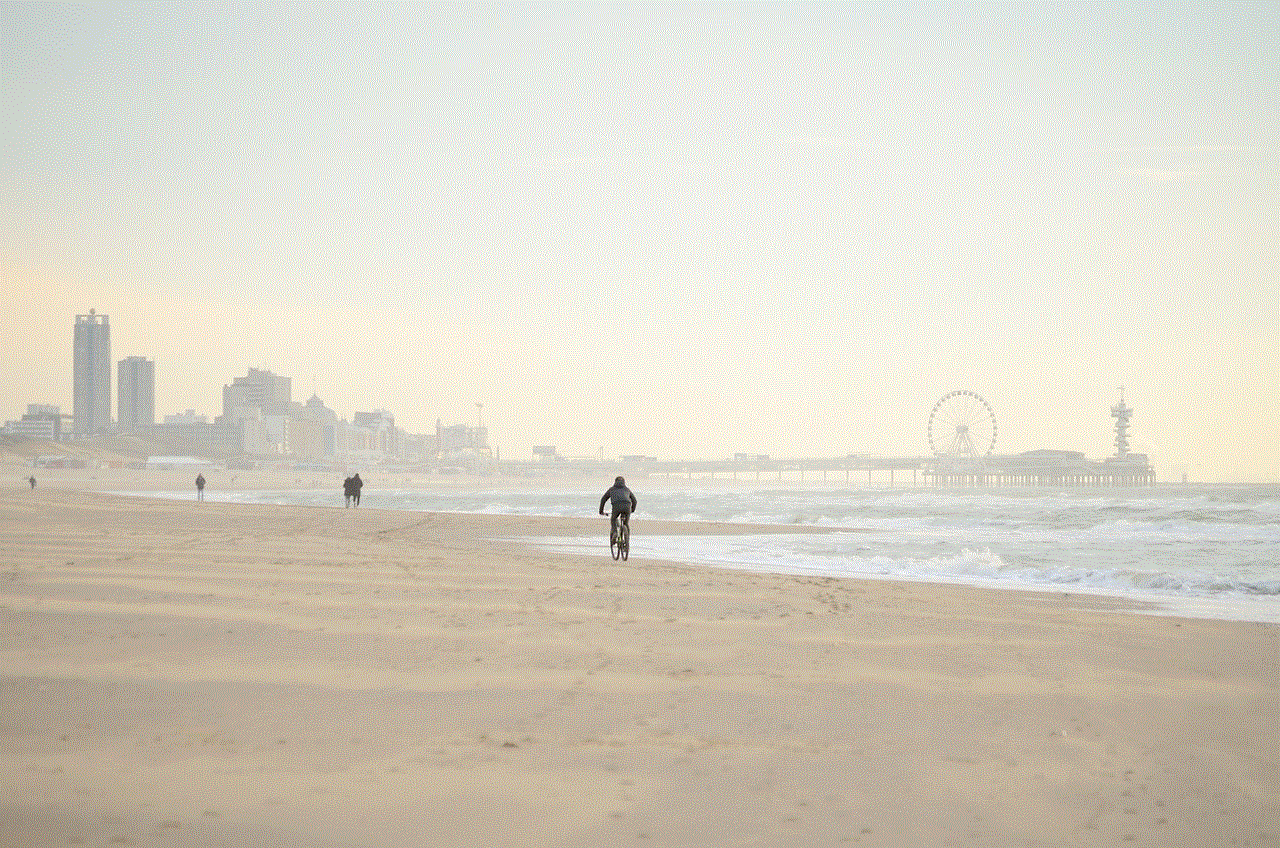why are my parents so strict
Parents play a crucial role in shaping the lives of their children. They are the first teachers, protectors, and role models for their children. As children grow up, they look up to their parents for guidance, support, and love. However, some parents tend to be more strict than others, and this can sometimes cause conflict and tension within the family. This leads to the question, “why are my parents so strict?”
There could be various reasons why parents are strict with their children. Some parents believe that strict rules and discipline are necessary for their children’s success and well-being. Others may have had strict parents themselves and believe that it is the best way to raise children. Whatever the reason may be, it is essential to understand why parents are strict and how it affects their children.
In this article, we will delve deeper into the topic of strict parents and explore the possible reasons behind their strictness. We will also discuss the impact of strict parenting on children and provide some tips for parents on how to balance discipline and love in their parenting style.
The first possible reason why parents are strict is that they want their children to be successful. Parents want the best for their children, and they believe that strict rules and discipline will help them achieve their goals. They may have high expectations for their children and want them to excel in academics, sports, or other areas. Hence, they enforce strict rules to ensure that their children stay focused and work hard towards their goals.
However, this kind of strictness can sometimes have negative consequences on children. The constant pressure to perform and meet their parents’ expectations can be overwhelming for some children. It can lead to stress, anxiety, and even rebellion. Children may feel like they are not good enough or that their parents’ love is conditional on their achievements. This can have a long-term impact on their self-esteem and self-worth.
Another reason why parents may be strict is that they want to protect their children. In today’s world, parents are constantly worried about their children’s safety. They are aware of the dangers that lurk in society, and they want to shield their children from them. Hence, they may impose strict rules such as curfew, no sleepovers, or no internet access to keep their children safe.
While this kind of strictness comes from a place of love and concern, it can also have adverse effects on children. It can make them feel suffocated and restrict their freedom. Children need to learn how to navigate the world on their own, and strict rules may hinder their development and independence. It is essential for parents to find a balance between protecting their children and allowing them to explore the world.
Some parents may also be strict because they want to instill values and morals in their children. They may have a set of beliefs and principles that they want their children to follow, and they enforce strict rules to ensure that their children adhere to them. These values could be related to religion, culture, or family traditions.
While it is important for children to learn about values and morals, it is equally important for parents to allow their children to form their own beliefs and opinions. Strict parenting can sometimes be authoritative, where children are expected to blindly follow their parents’ beliefs without questioning them. This can hinder critical thinking and limit children’s ability to make their own choices.
Another possible reason for strict parents could be their own upbringing. As mentioned earlier, some parents may have had strict parents themselves, and they believe that it is the best way to raise children. They may have been taught that discipline and obedience are crucial for a child’s success and well-being.
However, it is essential to understand that what may have worked for one generation may not work for the next. Times have changed, and so have parenting styles. It is crucial for parents to adapt to the changing times and understand that strictness does not equate to good parenting. Children need love, support, and understanding from their parents, not just strict rules and discipline.
Moreover, strict parenting can also be a result of fear. Parents may be afraid of losing control over their children or afraid of the consequences if their children do not follow the rules. This fear can stem from their own insecurities, past experiences, or even societal pressure. As a result, they may resort to strictness in an attempt to maintain control and order in their household.
However, strict parenting based on fear can have a detrimental effect on children. They may become rebellious, resentful, or develop a fear of authority figures. It can also damage the parent-child relationship and lead to a lack of trust and communication. Parents need to understand that fear-based parenting is not healthy and can have long-term consequences on their children’s well-being.
On the other hand, some parents may also use strictness as a way to assert their power and authority in the family. They may believe that their children should obey and respect them at all times, and strict rules and punishments are the only way to achieve that. This kind of strict parenting can be damaging as it does not allow children to express themselves or have a say in family matters.
Children need to feel heard and valued in their family. Strict parents who do not allow their children to voice their opinions or make decisions may hinder their emotional and social development. It is crucial for parents to create a safe and open environment where children feel comfortable expressing themselves without fear of judgment or punishment.
Another possible reason for strict parents could be their lack of knowledge or understanding of positive discipline techniques. Some parents may not know how to handle their children’s behavior, and they resort to strictness as it is the only way they know how to discipline. It is vital for parents to educate themselves about positive parenting techniques and learn how to discipline their children without being overly strict.
Now that we have discussed some of the possible reasons for strict parenting, let us explore the impact it has on children. While strict parents may have good intentions, their strictness can have adverse effects on their children’s emotional, social, and psychological well-being.
Firstly, strict parenting can lead to a lack of trust and communication between parents and children. When children are afraid to express themselves or share their thoughts and feelings with their parents, it can strain their relationship. They may not feel comfortable seeking their parents’ guidance or support, which can affect their emotional and social development.
Secondly, strict parenting can also lead to rebellious behavior in children. When children feel suffocated and restricted, they may resort to rebellious behavior as a way to assert their independence. This can lead to conflicts and tension within the family, which can be unhealthy for everyone involved.



Moreover, strict parenting can also hinder children’s ability to make decisions and think for themselves. When children are used to blindly following rules and not questioning authority, it can limit their critical thinking skills. They may struggle to make decisions on their own, which can affect their independence and confidence.
Furthermore, strict parenting can also lead to low self-esteem and self-worth in children. When children are constantly under pressure to perform and meet their parents’ expectations, it can take a toll on their mental health. They may feel like they are not good enough or that their parents’ love is conditional on their achievements. This can lead to feelings of inadequacy and low self-esteem.
Lastly, strict parenting can also hamper children’s social and emotional development. Children need to learn how to navigate the world on their own, and strict rules and punishments can hinder their growth and independence. They may struggle to form meaningful relationships and may have difficulty expressing their emotions and needs.
So, what can parents do to balance discipline and love in their parenting style? Here are some tips for parents who may be struggling with being too strict with their children:
1. Understand your child’s needs and personality: Every child is different, and what works for one child may not work for another. It is crucial for parents to understand their child’s needs, personality, and temperament. This will help them tailor their parenting style to suit their child’s individual needs.
2. Communicate openly with your child: Communication is the key to any healthy relationship, and the parent-child relationship is no exception. It is essential for parents to create a safe and open environment where children feel comfortable expressing themselves. This will help build trust and strengthen the parent-child bond.
3. Set reasonable rules and consequences: Instead of enforcing strict rules, parents can set reasonable rules and consequences for their children. This will allow children to understand the importance of following rules and the consequences of not doing so.
4. Be consistent: Consistency is crucial when it comes to discipline. Parents need to stick to the rules and consequences they have set for their children. This will help children understand that their actions have consequences and will encourage them to follow the rules.
5. Use positive reinforcement: Instead of focusing only on punishments, parents can also use positive reinforcement to encourage good behavior. This could be in the form of praise, rewards, or spending quality time with their children. Positive reinforcement is a powerful tool that can help children understand the value of good behavior.
6. Be empathetic: Parents need to be empathetic towards their children and try to see things from their perspective. When children feel understood and heard, they are more likely to cooperate and follow rules.
7. Seek support and guidance: Parenting is not an easy job, and it is okay to seek support and guidance when needed. Parents can join parenting groups or seek help from a professional if they feel overwhelmed or need advice on how to handle their children’s behavior.



In conclusion, strict parents may have good intentions, but their strictness can have adverse effects on their children’s well-being. It is crucial for parents to understand why they are strict and the impact it has on their children. Parents need to find a balance between discipline and love and create a healthy and supportive environment for their children to thrive in. By understanding their children’s needs and communicating openly with them, parents can raise happy, well-adjusted, and independent individuals.
what is body checking
Body checking is a term that is commonly used in the world of sports, particularly in ice hockey and lacrosse. It refers to a technique used by players to physically block or impede their opponents in order to gain possession of the ball or puck. This technique involves using one’s body as a barrier or wall to prevent the opponent from advancing, and it is a fundamental aspect of these physical and fast-paced sports.
The concept of body checking has been a part of ice hockey since its early days, with its origins tracing back to the early 19th century when the sport was first played in Canada. At that time, physical contact between players was not only allowed but also encouraged, as it was seen as a way to intimidate and weaken the opposing team. However, as the sport evolved and became more organized, body checking was eventually regulated and limited to certain areas of the ice, with the intention of making the game safer for players.
In its simplest form, body checking involves using one’s body to make contact with another player in order to separate them from the puck. This can be done by either using one’s body to block an opponent or by using one’s body to hit and knock them off balance. The latter is known as a “body check” or “hit” and is a more aggressive form of checking that aims to physically dominate the opponent. Both forms of body checking require a certain level of skill and technique, as they need to be executed with precision and timing to be effective.
Body checking is not only a physical aspect of the game but also a strategic one. In ice hockey, for example, a well-timed and well-executed body check can not only break the opponent’s momentum but also create open spaces on the ice for one’s own team to exploit. It is also used as a way to send a message to the opposing team and establish dominance. This is particularly true in competitive games where emotions run high, and players are looking to gain any advantage they can.
However, despite its importance and effectiveness in the game, body checking is also a controversial aspect of sports, with debates surrounding its safety and potential for causing injuries. This is especially true in youth and amateur leagues, where players may not have the same level of skill and experience as professional players. In recent years, the debate around body checking has intensified, with calls for stricter regulations and even complete bans in certain leagues.
This controversy is not surprising, considering the physical nature of body checking and the potential for serious injuries. Concussions, broken bones, and other types of injuries are not uncommon in ice hockey and lacrosse, and body checking is often cited as one of the contributing factors. In fact, a study published in the Canadian Medical Association Journal found that body checking accounts for 86% of all injuries in youth ice hockey.
To address these concerns and make the game safer, various rules and regulations have been implemented in recent years. In ice hockey, body checking is allowed in certain age groups, with restrictions on when and how it can be used. For example, in the United States, body checking is not allowed until the age of 14, while in Canada, it is allowed at the age of 12. In both countries, there are also rules in place that limit body checking to certain areas of the ice, such as the corners and along the boards. Additionally, players are required to keep their arms and elbows down when delivering a hit to avoid causing head and neck injuries.
Despite these regulations, the debate around body checking continues, with some arguing that it is an essential part of the game and others calling for its complete elimination. Those in favor of body checking argue that it is a necessary skill in competitive sports and that it teaches players valuable lessons such as teamwork, discipline, and perseverance. They also argue that with proper coaching and education, injuries can be minimized, and the benefits of body checking can outweigh the risks.



On the other hand, those who advocate for the ban of body checking argue that the potential for serious injuries is too high, especially in youth sports. They also argue that body checking is not essential to the game and that there are other ways to teach players valuable skills without putting them at risk of injury. Additionally, they argue that by eliminating body checking, the game can become more inclusive and accessible to players of all sizes and physical abilities.
In conclusion, body checking is a fundamental aspect of sports like ice hockey and lacrosse, and it has been a part of these games for centuries. Despite its effectiveness and strategic importance, it is also a controversial aspect of the game, with debates surrounding its safety and potential for causing injuries. While regulations and rules have been put in place to make the game safer, the debate around body checking continues, and it is likely to remain a hot topic in the world of sports for years to come.